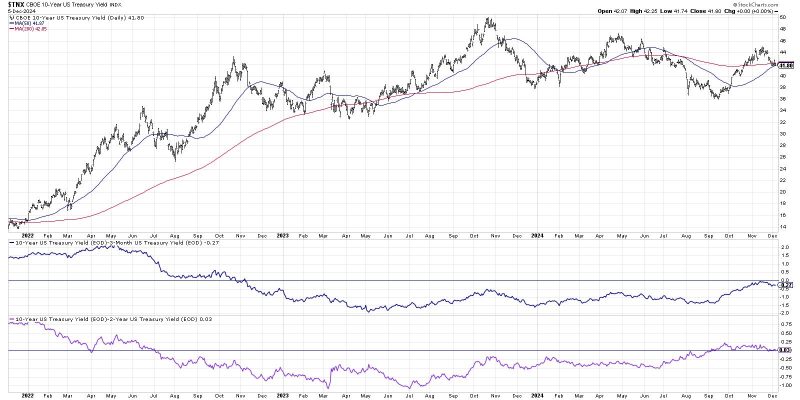When considering investments in the market, it is essential for investors to analyze various economic indicators and trends that can influence the performance of different assets. One such critical factor is the yield curve, which depicts the relationship between bond yields and their maturities. A normal yield curve, where long-term bonds have higher yields than short-term bonds, is considered a sign of a healthy and growing economy. In this article, we will explore two Exchange-Traded Funds (ETFs) that could potentially thrive based on a normal yield curve.
The first ETF worth considering in a normal yield curve environment is the iShares U.S. Financials ETF (IYF). This ETF provides exposure to a basket of financial stocks, including banks, insurance companies, and other financial institutions. Financial companies typically benefit from a normal yield curve as they can borrow money at lower short-term rates and lend it out at higher long-term rates, thereby increasing their profit margins. In addition, a healthy economy associated with a normal yield curve can lead to increased loan demand and higher investment returns for financial firms, making IYF an attractive investment option in such a scenario.
Another ETF that could thrive in an environment characterized by a normal yield curve is the Vanguard Real Estate Index Fund ETF (VNQ). This ETF tracks the performance of real estate investment trusts (REITs) that own and manage various properties, such as residential, commercial, and healthcare real estate. REITs often benefit from a normal yield curve due to their reliance on debt financing for property acquisitions and developments. Lower short-term borrowing costs combined with higher long-term property yields can lead to increased profitability and higher dividends for REITs, making VNQ an appealing investment choice when the yield curve is normal.
Investors should keep in mind that while historical trends and economic theories suggest that certain assets may perform well in a normal yield curve environment, the market is unpredictable, and various external factors can influence the performance of ETFs and other investments. It is essential for investors to conduct thorough research, consider their individual risk tolerance and investment goals, and diversify their portfolios to mitigate risks and maximize returns in different market conditions.
In conclusion, the iShares U.S. Financials ETF (IYF) and the Vanguard Real Estate Index Fund ETF (VNQ) are two ETFs that could potentially thrive based on a normal yield curve. These ETFs provide exposure to financial and real estate sectors that stand to benefit from lower short-term rates and higher long-term returns in a healthy economic environment. However, investors should exercise caution, conduct their due diligence, and seek professional advice before making any investment decisions to navigate the complexities of the financial markets successfully.

